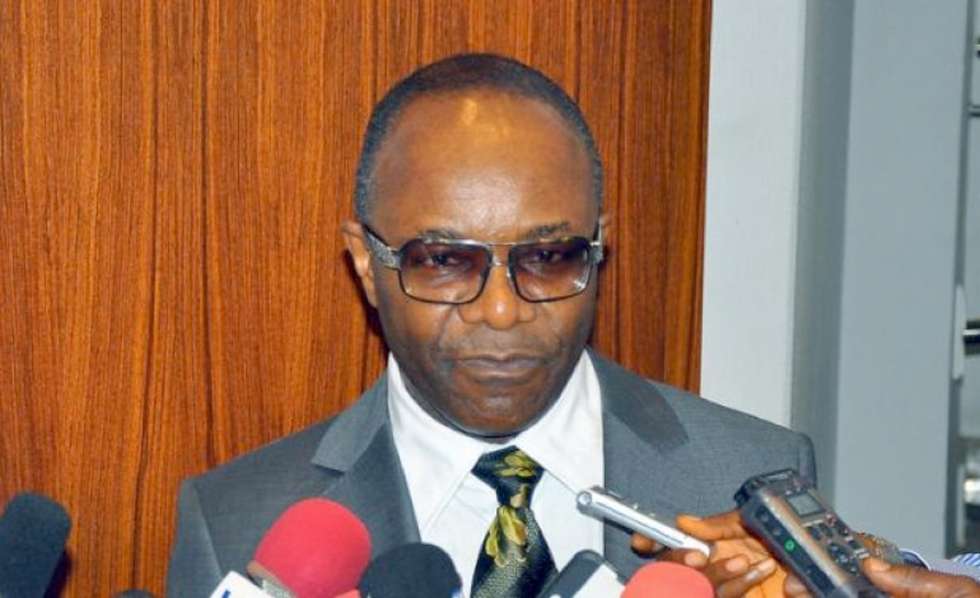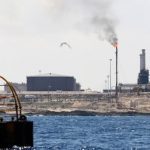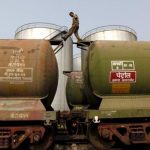 Nigeria’s Minister of State for Petroleum Resources, Ibe Kachikwu, says that the reforms embarked upon by the government are targeted at cutting petroleum products’ importation by at least 60 per cent by 2018 and position the country for net export by 2019.
Nigeria’s Minister of State for Petroleum Resources, Ibe Kachikwu, says that the reforms embarked upon by the government are targeted at cutting petroleum products’ importation by at least 60 per cent by 2018 and position the country for net export by 2019.
The minister also stressed the need to fully liberalise and deregulate the midstream and downstream sub-sectors so that the open market prices of petroleum products will be cost-reflective and market-driven.
The minister highlighted the need to build refineries and run them as profit centres.
According to Kachikwu, a key priority area in the road map for the oil industry is increase in local refining production capacity through the implementation of modular refineries and co-location.
 Nigeria’s Minister of State for Petroleum Resources, Ibe Kachikwu, says that the reforms embarked upon by the government are targeted at cutting petroleum products’ importation by at least 60 per cent by 2018 and position the country for net export by 2019.
Nigeria’s Minister of State for Petroleum Resources, Ibe Kachikwu, says that the reforms embarked upon by the government are targeted at cutting petroleum products’ importation by at least 60 per cent by 2018 and position the country for net export by 2019.
The minister also stressed the need to fully liberalise and deregulate the midstream and downstream sub-sectors so that the open market prices of petroleum products will be cost-reflective and market-driven.
The minister highlighted the need to build refineries and run them as profit centres.
According to Kachikwu, a key priority area in the road map for the oil industry is increase in local refining production capacity through the implementation of modular refineries and co-location.
 Nigeria’s Minister of State for Petroleum Resources, Ibe Kachikwu, says that the reforms embarked upon by the government are targeted at cutting petroleum products’ importation by at least 60 per cent by 2018 and position the country for net export by 2019.
Nigeria’s Minister of State for Petroleum Resources, Ibe Kachikwu, says that the reforms embarked upon by the government are targeted at cutting petroleum products’ importation by at least 60 per cent by 2018 and position the country for net export by 2019.
The minister also stressed the need to fully liberalise and deregulate the midstream and downstream sub-sectors so that the open market prices of petroleum products will be cost-reflective and market-driven.
The minister highlighted the need to build refineries and run them as profit centres.
According to Kachikwu, a key priority area in the road map for the oil industry is increase in local refining production capacity through the implementation of modular refineries and co-location.
 Nigeria’s Minister of State for Petroleum Resources, Ibe Kachikwu, says that the reforms embarked upon by the government are targeted at cutting petroleum products’ importation by at least 60 per cent by 2018 and position the country for net export by 2019.
Nigeria’s Minister of State for Petroleum Resources, Ibe Kachikwu, says that the reforms embarked upon by the government are targeted at cutting petroleum products’ importation by at least 60 per cent by 2018 and position the country for net export by 2019.
The minister also stressed the need to fully liberalise and deregulate the midstream and downstream sub-sectors so that the open market prices of petroleum products will be cost-reflective and market-driven.
The minister highlighted the need to build refineries and run them as profit centres.
According to Kachikwu, a key priority area in the road map for the oil industry is increase in local refining production capacity through the implementation of modular refineries and co-location.
 Nigeria’s Minister of State for Petroleum Resources, Ibe Kachikwu, says that the reforms embarked upon by the government are targeted at cutting petroleum products’ importation by at least 60 per cent by 2018 and position the country for net export by 2019.
Nigeria’s Minister of State for Petroleum Resources, Ibe Kachikwu, says that the reforms embarked upon by the government are targeted at cutting petroleum products’ importation by at least 60 per cent by 2018 and position the country for net export by 2019.
The minister also stressed the need to fully liberalise and deregulate the midstream and downstream sub-sectors so that the open market prices of petroleum products will be cost-reflective and market-driven.
The minister highlighted the need to build refineries and run them as profit centres.
According to Kachikwu, a key priority area in the road map for the oil industry is increase in local refining production capacity through the implementation of modular refineries and co-location.
 Nigeria’s Minister of State for Petroleum Resources, Ibe Kachikwu, says that the reforms embarked upon by the government are targeted at cutting petroleum products’ importation by at least 60 per cent by 2018 and position the country for net export by 2019.
Nigeria’s Minister of State for Petroleum Resources, Ibe Kachikwu, says that the reforms embarked upon by the government are targeted at cutting petroleum products’ importation by at least 60 per cent by 2018 and position the country for net export by 2019.
The minister also stressed the need to fully liberalise and deregulate the midstream and downstream sub-sectors so that the open market prices of petroleum products will be cost-reflective and market-driven.
The minister highlighted the need to build refineries and run them as profit centres.
According to Kachikwu, a key priority area in the road map for the oil industry is increase in local refining production capacity through the implementation of modular refineries and co-location.
 Nigeria’s Minister of State for Petroleum Resources, Ibe Kachikwu, says that the reforms embarked upon by the government are targeted at cutting petroleum products’ importation by at least 60 per cent by 2018 and position the country for net export by 2019.
Nigeria’s Minister of State for Petroleum Resources, Ibe Kachikwu, says that the reforms embarked upon by the government are targeted at cutting petroleum products’ importation by at least 60 per cent by 2018 and position the country for net export by 2019.
The minister also stressed the need to fully liberalise and deregulate the midstream and downstream sub-sectors so that the open market prices of petroleum products will be cost-reflective and market-driven.
The minister highlighted the need to build refineries and run them as profit centres.
According to Kachikwu, a key priority area in the road map for the oil industry is increase in local refining production capacity through the implementation of modular refineries and co-location.
 Nigeria’s Minister of State for Petroleum Resources, Ibe Kachikwu, says that the reforms embarked upon by the government are targeted at cutting petroleum products’ importation by at least 60 per cent by 2018 and position the country for net export by 2019.
Nigeria’s Minister of State for Petroleum Resources, Ibe Kachikwu, says that the reforms embarked upon by the government are targeted at cutting petroleum products’ importation by at least 60 per cent by 2018 and position the country for net export by 2019.
The minister also stressed the need to fully liberalise and deregulate the midstream and downstream sub-sectors so that the open market prices of petroleum products will be cost-reflective and market-driven.
The minister highlighted the need to build refineries and run them as profit centres.
According to Kachikwu, a key priority area in the road map for the oil industry is increase in local refining production capacity through the implementation of modular refineries and co-location.














